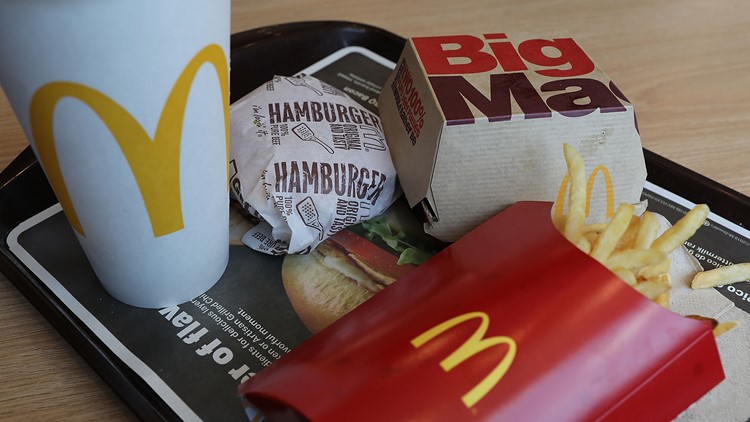Women who eat less fruit and more fast food are less likely to conceive within a year and more likely to experience infertility, according to new study.
For the study, published Friday in the peer-reviewed medical journal Human Reproduction, researchers analyzed diets of 5,598 women in Australia, New Zealand, the U.K. and Ireland.
The team, led by professor Claire Roberts from University Adelaide's Robinson Research Institute in Australia, found women who eat fast food four or more times a week took nearly a month longer to become pregnant. Fast food was defined as items bought from fast food restaurants, and did not include fast food items bought from supermarkets, such as pizza. So, overall fast food consumption might have been underreported, researchers said.
Women who ate fruit three or more times a day increased chances of becoming pregnant quickly. Women who ate fruit less than one to three times a month took half a month longer to conceive, the study found.
Researchers determined women who ate the least amount of fruit increased their risk of infertility from 8% to 12% and women who ate fast food four or more times a week increased their risk from 8% to 16%. Infertility is defined as not being able to get pregnant after one year.
"We recommend that women who want to become pregnant should align their dietary intakes towards national dietary recommendations for pregnancy," first author Jessica Grieger said in a statement. "Our data shows that frequent consumption of fast foods delays time to pregnancy."
Eating green leafy vegetables and fish did not seem to affect time conceiving.
Data on pre-pregnancy diet was collected retrospectively during the first prenatal visit and information on father's diet was not a part of the study — both factors could have impacted conclusions. The team plans to further study dietary patterns and their link to conception.
"For any dietary intake assessment, one needs to use some caution regarding whether participant recall is an accurate reflection of dietary intake," Grieger said. "However, given that many women do not change their diet from pre-pregnancy to during pregnancy, we believe that the women's recall of their diet one month prior to pregnancy is likely to be reasonably accurate."



